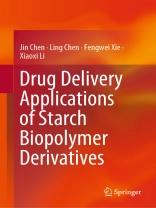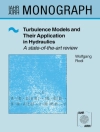This book summarizes the recent advances in applications of starch in state-of-the-art drug carriers (hydrogel, micro- and nano-particulate carriers) with stimulus-responsive and target-specific properties. It also highlights the role of starch and its derivatives in transmucosal administration to improve the bioavailability of drugs. Further, it outlines the principles of effective, advanced, starch-based drug delivery systems and illustrates how these principles are key to the development of future drug delivery strategies. This interesting reference resource is useful for students, researchers and engineers in the fields of carbohydrate chemistry, polymer sciences and drug delivery.
Tabela de Conteúdo
Introduction.- Physiological and pathological bases for designing high-performance drug delivery carriers.- Material nature and physicochemical properties for high-performance of carriers.- Starch.- Starch-based DDSs with stimulus-responsiveness.- Starch-based DDSs with physiological interactions.- Toxicology of starch-based DDSs.- Conclusion and future perspectives.
Sobre o autor
Jin Chen is a Ph.D. student at the School of Food Science and Engineering, South China University of Technology (SCUT), where her research focuses on biopolymer-based gene/drug delivery systems. From 2016 to 2017, she was a visiting Ph.D. student at the Centre for High Performance Polymers (CHPP), School of Chemical Engineering, The University of Queensland (Australia).
Ling Chen is a Full Professor at the School of Food Science and Engineering, South China University of Technology (SCUT). She also serves as Deputy Director of the Ministry of Education Engineering Research Center of Starch and Protein Processing, the Guangdong Provincial Key Laboratory for Green Processing of Natural Products and Product Safety, and the Ministry of Education Research Institute of Light Chemical Industry. She has led numerous research projects in the field of starch modification and drug delivery systems and several awards, such as The Ministry of Education (China) Science and Technology Progress Award for her contribution to the field at the national and international level. Her current research interests include starch modification and functionalization; the modulation of blood glucose, lipid and protein metabolism by starch on the gene level; starch-based, controlled-release delivery systems for drugs and bioactive ingredients; and novel solvents such as ionic liquids for starch processing and modification.
Fengwei Xie is a Marie Skłodowska-Curie Actions (MSCA) Individual Fellow at the International Institute of Nanocomposite Manufacturing (IINM), WMG, University of Warwick. He holds a Ph.D. (2009) degree in Polysaccharide Engineering from South China University of Technology. Since 2008, he has pursued research at various universities, including the University of Guelph (Canada), Université de Strasbourg (France), University of Queensland (Australia), and California Institute of Technology (USA).His research focuses on the development of sustainable materials, particularly those based on natural polymers, for high-value and high-volume applications; and on exploring the underlying mechanisms of the processing, structure and properties of such materials.
Xiaoxi Li is a Full Professor at the School of Food Science and Engineering, South China University of Technology (SCUT), where he also serves as a School Manager. In addition he is responsible for the Ministry of Education Engineering Research Center of Starch and Protein Processing, and the Guangdong Province Key Laboratory for Green Processing of Natural Products and Product Safety. He has published over 40 papers in leading journals and has led several research projects funded by the National Natural Science Foundation of China and the Science and Technology Program of Guangzhou. His current research involves chemistry and characterization of carbohydrate polymers and construction of smart controlled-release delivery system and targeting-specific delivery system for genes, drugs andbioactive ingredients.












